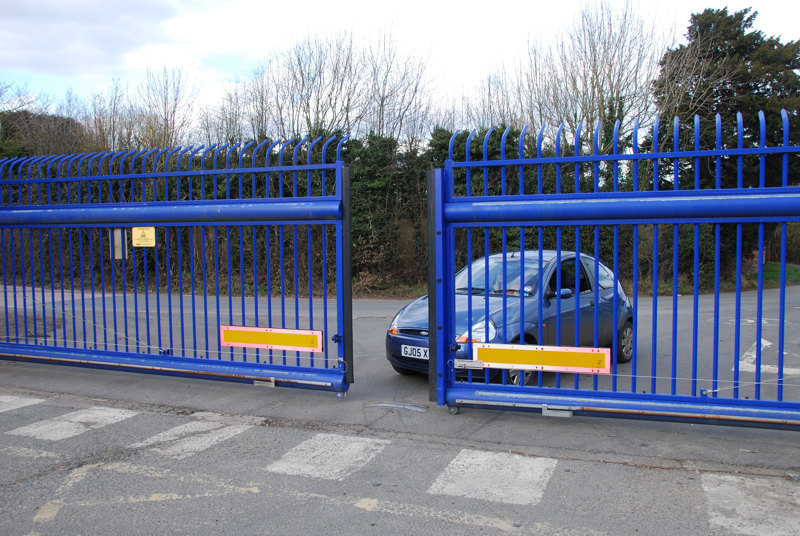A shocking national survey undertaken by Gate Safe, which reviewed more than 100 automated gates in a commercial setting, has revealed that over 90% of the installations reviewed were deemed unsafe and failed to meet the agreed safety protocol for an automated gate.
The survey included 49 sliding and 65 swing gates and while the safety was marginally better on the former, with just under 80% of sliding gates reported as unsafe, with the absence of any drawing in (run back) protection and the failure to feature safety edges on the trailing gate leaf representing the most common safety pitfalls. Commercial swing gate installations included in the survey demonstrated an appalling disregard for safety with over 98% of gates regarded as unsafe, with lack of hinge protection and the failure to install safety edges fitted to the bottom rail of the gate the most frequently cited reasons leading to the condemnation of the gates.
Founder of Gate Safe, Richard Jackson says, “While awareness of the importance of automated gate safety has definitely improved since 2010, when Gate Safe was first started following the tragic death of two children in two consecutive accidents, this survey demonstrates that there is still much to be done to address the problem of unsafe gates in the field. Although Gate Safe has trained in excess of 1,500 installers, we know that there are still people out there fitting and maintaining automated gates who are lacking in the appropriate knowledge to ensure the job represents a legally compliant and SAFE installation. It is important to note that many of the gates we surveyed may not have been newly installed, BUT a competent installer maintaining such gates would have a responsibility to inform the owner of the hazards that these gates represent – and ultimately to take them out of action until the required remedial works have been undertaken. We would also point out that if there is an accident and the insurance providers find out that the gate is not deemed ‘safe’ and has not been adequately maintained, it is likely that the business insurance would be invalid leaving the gate owner liable for all claims. If an accident does occur – and sadly there have been many accidents and indeed fatalities on commercial sites – the Health & Safety Executive (HSE) will likely initiate proceedings that can have a devastating impact on the business so why take the risk? Unsafe gates can kill and sadly, we have the statistics to prove this.”
Ian Ripley, CEO, Association of Fencing Industries (AFI) which is an official supporter of Gate Safe commented, “We urge any of our members who are involved in automated gate installations to take the necessary Gate Safe training to ensure that they play a pivotal role in addressing the problem of the large number of unsafe commercial – and domestic – gates that remain in the public domain. As professionals in their field, they have the opportunity to educate and inform business owners – and of course home owners – on the importance of automated gate safety and can take direct action to prevent condemned gates from inflicting injury or worse …”
If you have concerns regarding the safety of an automated gate or barrier, speak to your regular maintenance provider or for an impartial assessment of the gate, contact Gate Safe, info@gate-safe.org or call 01303 840 117.
